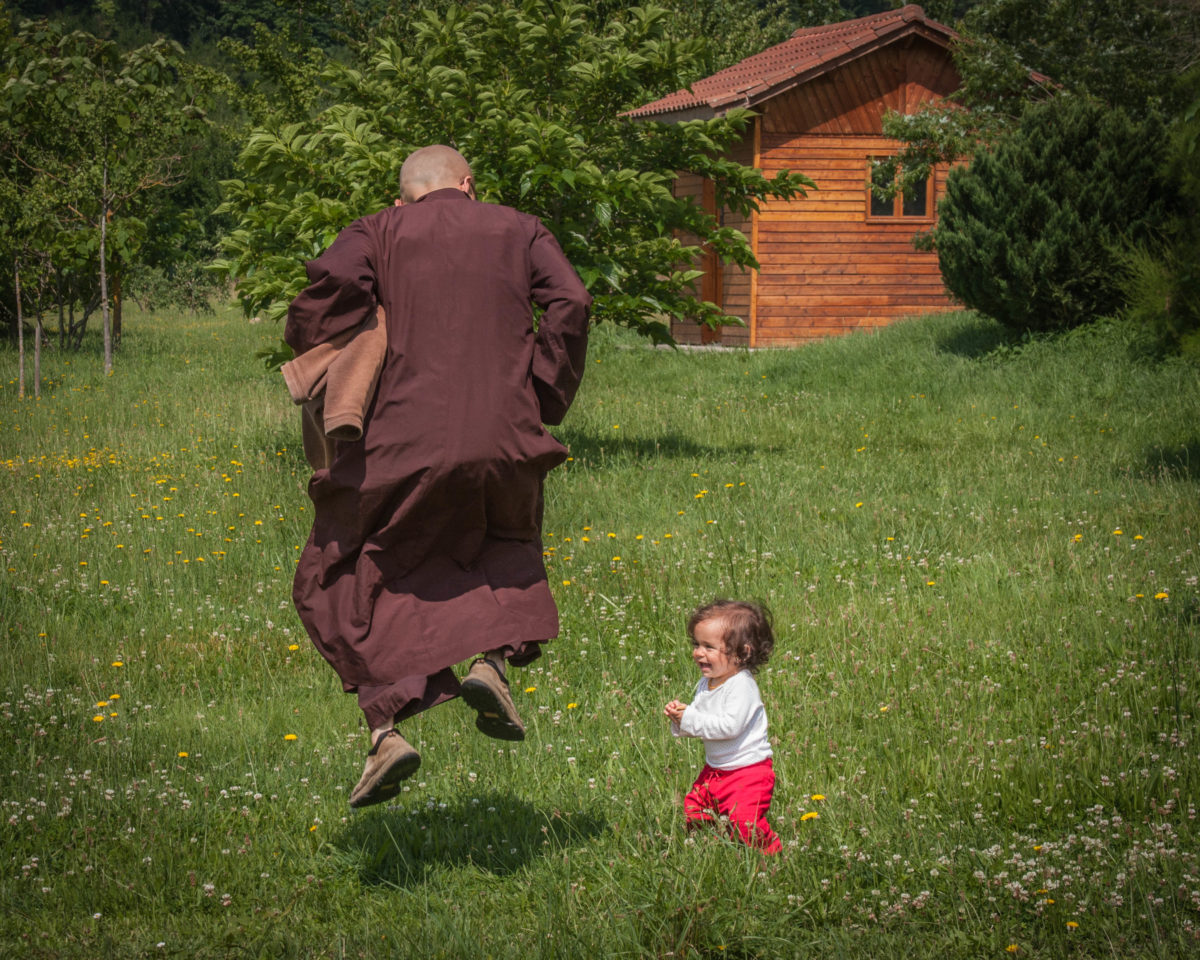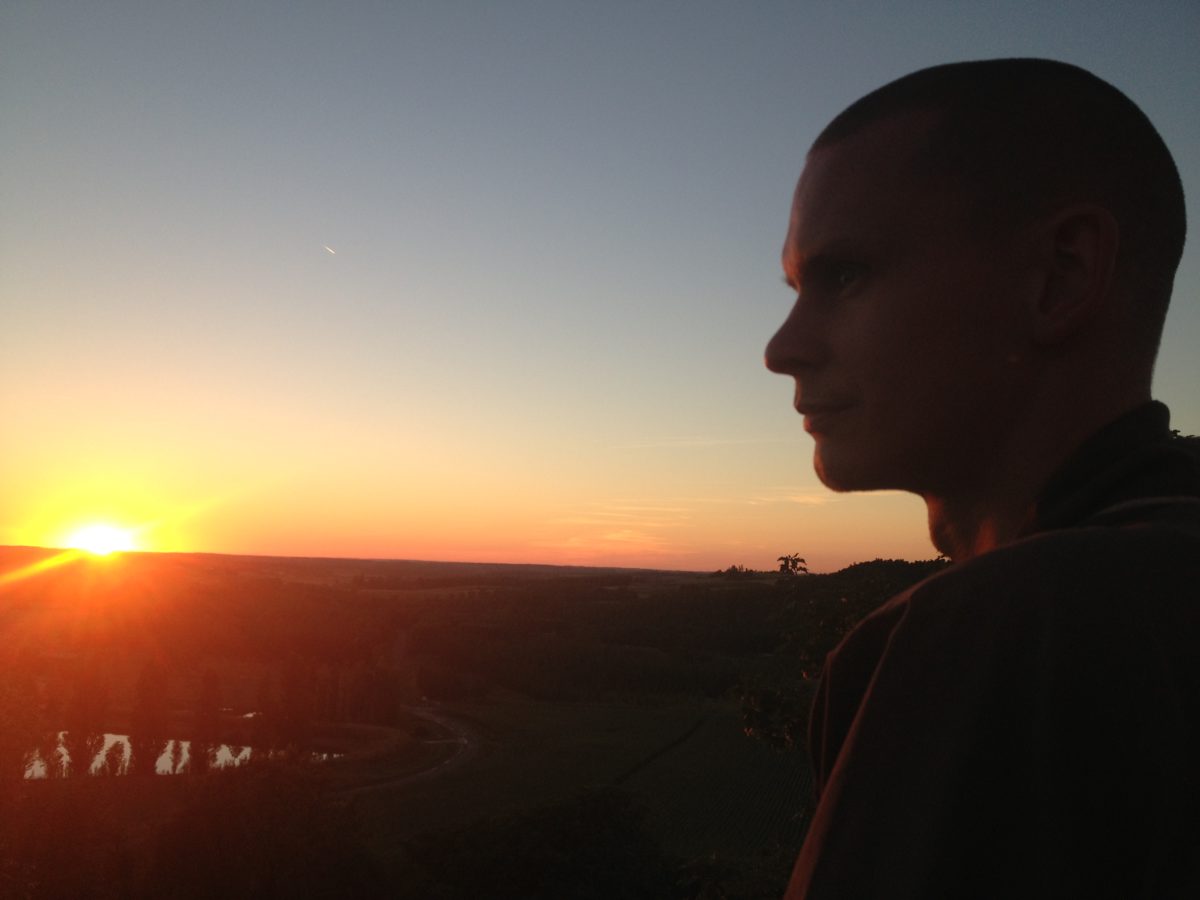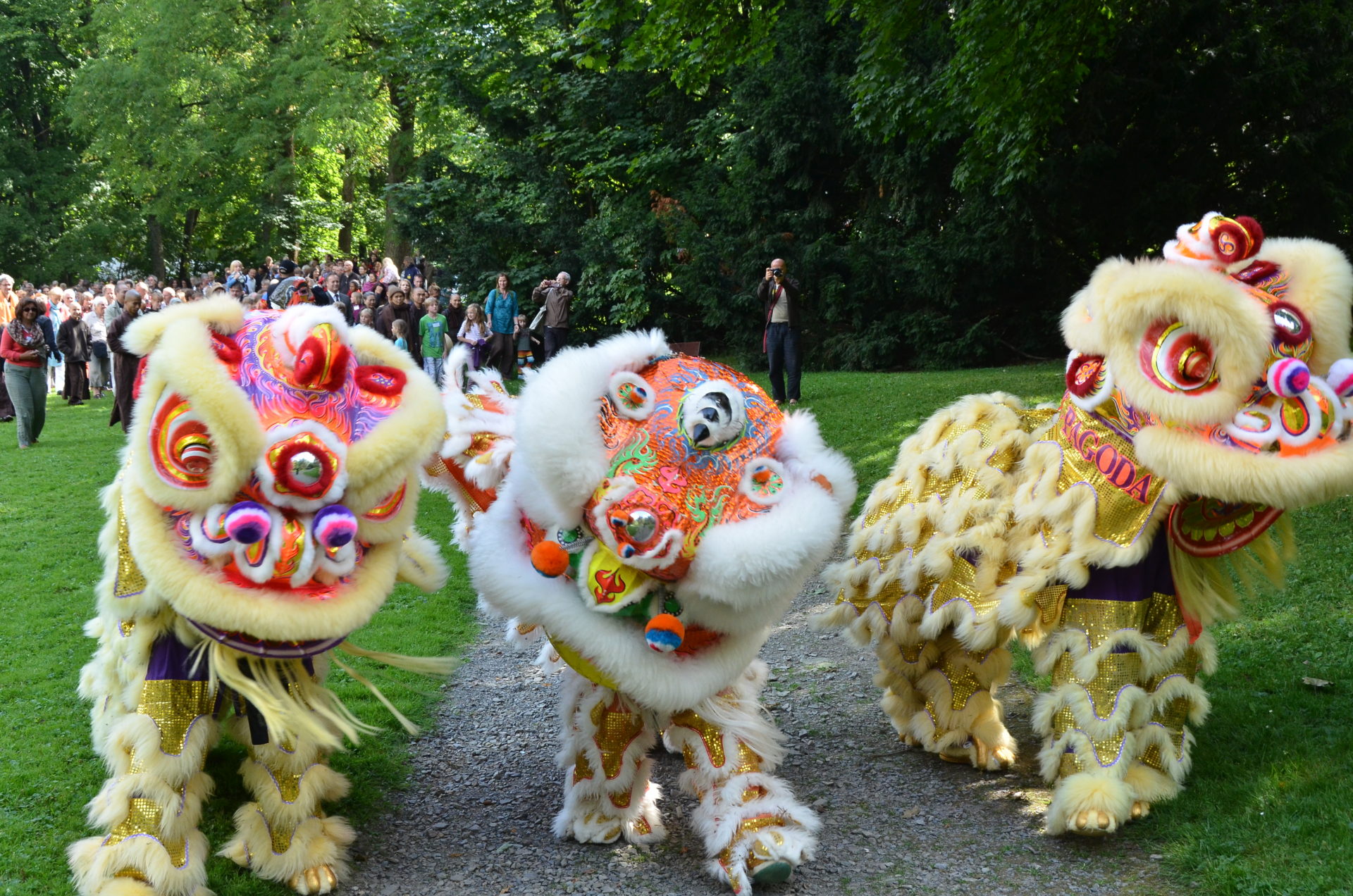By Brother Pham Hanh
July 4, 2012—Independence Day, the day I became a monk—is now one year ago. What is a monk? Why become a monk? Is it the best way to live your life? Did this year really make a difference for me? Did I really transform?
I always have many questions. I remember the first question I wanted to ask Thay as a lay friend: How do you know if an answer you give to yourself comes from the reasoning mind or from deep wisdom?
By Brother Pham Hanh
July 4, 2012—Independence Day, the day I became a monk—is now one year ago. What is a monk? Why become a monk? Is it the best way to live your life? Did this year really make a difference for me? Did I really transform?
I always have many questions. I remember the first question I wanted to ask Thay as a lay friend: How do you know if an answer you give to yourself comes from the reasoning mind or from deep wisdom? At that time, I thought Thay did not understand my question because, in response, he talked about which seeds you should help to grow and which seeds you should not water.
To Live My Aspiration
I grew up in the Netherlands within a Jewish/Christian-based contemporary religious community. At age nineteen I’d finished high school and started working in the computer business full time while studying IT in the evening. Always very eager, hardworking, and looking for challenges, I made good progress. At age twenty-six, I was working for myself as an IT consultant and earned the money and got the fancy car I always thought I deserved for my efforts. But in 2009, after ending my second long-term relationship, I’d worked myself into a burnout and ended up in Plum Village, which drastically changed my life.
In Plum Village, many of my questions were answered, about relationships, love, volition, and purpose, and I started dedicating more of my life to service by building Sangha and organizing Wake Up retreats. My life became simpler. I ended up selling my house and car and living on a small patch of land in a wooden hut. With a decent amount of money, I didn’t need to work anymore and had all the time in the world. So now I could do what I’d always wanted to do, but what was that?
Wake Up became the main focus in my life. I found out deep in myself that happiness is found not in having ideal conditions, but in having a healthy, free attitude. In order to be able to deeply live my aspiration, I needed to transform many things. The best way to do this was to train as a monk for five years, as this could lay the foundation for a deep, meaningful life, either as a layperson or as a monk for life.

Training in True Love
What did I realize in this first year as a monk? First and foremost, I have cultivated more ease. I feel less eager to think that I should be the one doing things. Before, I thought that I knew better how to do things or wanted to have the attention. I now see that things are okay as they are. I do not feel changed or transformed; I just notice that I react differently. I don’t take things as seriously, and the need to change things immediately is much less strong. I just smile.
Being a monk at this point is a training. I look like a monk, keep the precepts, and try to apply the mindful manners, but mostly I try to be in harmony with the brothers and enjoy my own presence. My habit energies could easily make me behave un-monk-like, to be honest. But as I have committed to train as a monk, I do not follow those habit energies. The training helps me more and more to see the deeper roots of my thinking, habits, and feelings. I see my suffering in a different light and have a better understanding of why my relationships did not work out, why I struggle in work and with accomplishments, and why there was so often a feeling of pointlessness in my life before.
By not being involved in sex, drugs, alcohol, money, fame, and power, I more clearly see the effect of these influences, and my mind does not create excuses as to why they are not a problem. I look at couples, see their attachment and their craving, and remember the suffering that I also had before. I do not condemn it, but I see that in me there are still many seeds that need to be transformed in order to not create suffering in the future, if I ever have another romantic relationship. As a monk you are protected from such relationships, though living with the monks and being close to the sisters does not mean there is no love or intimacy.
I’m building up real friendship here in which I’m still free, but we have joy together. I do not get too attached, so I do not have to claim the other person for my needs. At the same time I see the brothers’ efforts to understand me and give me what I need. It is not always pleasant to hear what they have to say, because it might not be what I want, but it may be what I need. This understanding, friendship, joy, and freedom is real love and is not limited to one person.
For me, being a monastic is about learning true love in the safest way. It does not involve expressing sexual energy. This energy is so strong and deep that it is often destructive and addictive. I still have a deep wish to understand it, so it is not by chance that I received the name Pham Hanh, brahmacharya, Brother Holy Life,
or more simply Brother Abstinence or Brother Celibacy. Sexuality is a topic I discuss often with the brothers and I’ve learned so much about it. I’m not ready to make a commitment to never have a romantic relationship again, and it comforts me that I’m doing the five-year monastic program so I do not have to worry about that desire. I’m here to train with the desire because I have created enough suffering and I do not want to repeat my mistakes. But an intuition tells me that by practicing as a monk, I will be able to love and experience intimacy so deeply in every moment that the desire for sexual intimacy will be transcended. That is my aim, but I will take my time. If that happens, or I have enough faith that it will happen, I can be a real monk.
Just Enjoy
How does being a monk help others? Just living freely, happily, and easily already helps others. When you cultivate those things, they naturally flow out of you. Just looking at a young child makes us smile, so how do we feel looking at a monk or nun? I’ve noticed that the most beautiful things we offer are mostly not the things we think we offer, so I do not worry about what I offer as a monk. I practice to be happy.
I see how fortunate I am with the roots and seeds I’ve received from my parents, my church, my country, my teachers, and the whole world. I recognize my ancestors in me and see that I continue their aspiration. As a monk I can honor this aspiration just by practicing. Plum Village is a wholesome environment where many good seeds are watered, and I can be lazy. When you learn to be mindful and you can relax, then you become less uptight and things flow naturally. That is the deepest meaning of laziness, allowing things to manifest without control. So now I just allow my questions to sink in. Maybe an answer will manifest, maybe not. By practicing and watering the good seeds, I transform my base and it does not matter if my question is transcended or not. We can just enjoy our life, just enjoy ourselves.
What I do not understand is why we’re not flooded with new monks. Sure, you need to step into the deep and let go of stuff and ideas (the ability to let go is what makes happiness possible in the monastery), but what you get back is so much easier to carry with you. I was afraid of losing my money when I had it. Now I just have the Dharma and I’m not afraid of losing that! My favorite question remains: What do you really want?

This article was originally published on the Wake Up website. Please visit wkup.org to learn more about the Wake Up movement, an active global community of young adults established by Thay in 2008.

